Synthetic Intelligence has achieved exceptional feats, from recognizing pictures and translating languages to beating people at chess. Nonetheless, AI is just not omnipotent, as there are key domains and duties the place it falls in need of human functionality. Present AI programs are “slender” specialists that excel in well-defined issues however wrestle with normal conditions requiring widespread sense, creativity, or emotional understanding. On this article, we discover a number of domains and real-world purposes that AI can’t (but) successfully substitute, additional highlighting AI’s inherent limitations that maintain people important.
AI is incompetent within the following domains:
Creativity and Originality
Creativity is likely one of the issues that most individuals mistake AI’s capabilities for. So, some stage of disillusionment is required to get issues began:
AI is just not really artistic within the human sense
Thus far, AI mimics! It doesn’t innovate with that means or intent. In artistic domains, human ingenuity nonetheless has the higher hand. Whereas AI can produce artwork or writing by studying patterns from current works, it lacks creativeness, cultural perception, and emotional depth. It excels at synthesizing current info, however struggles with ingenious creation. This implies an AI artist can remix kinds or an AI author can imitate a style, however arising with a profoundly authentic idea or a narrative that resonates on a deep human stage is one other matter.
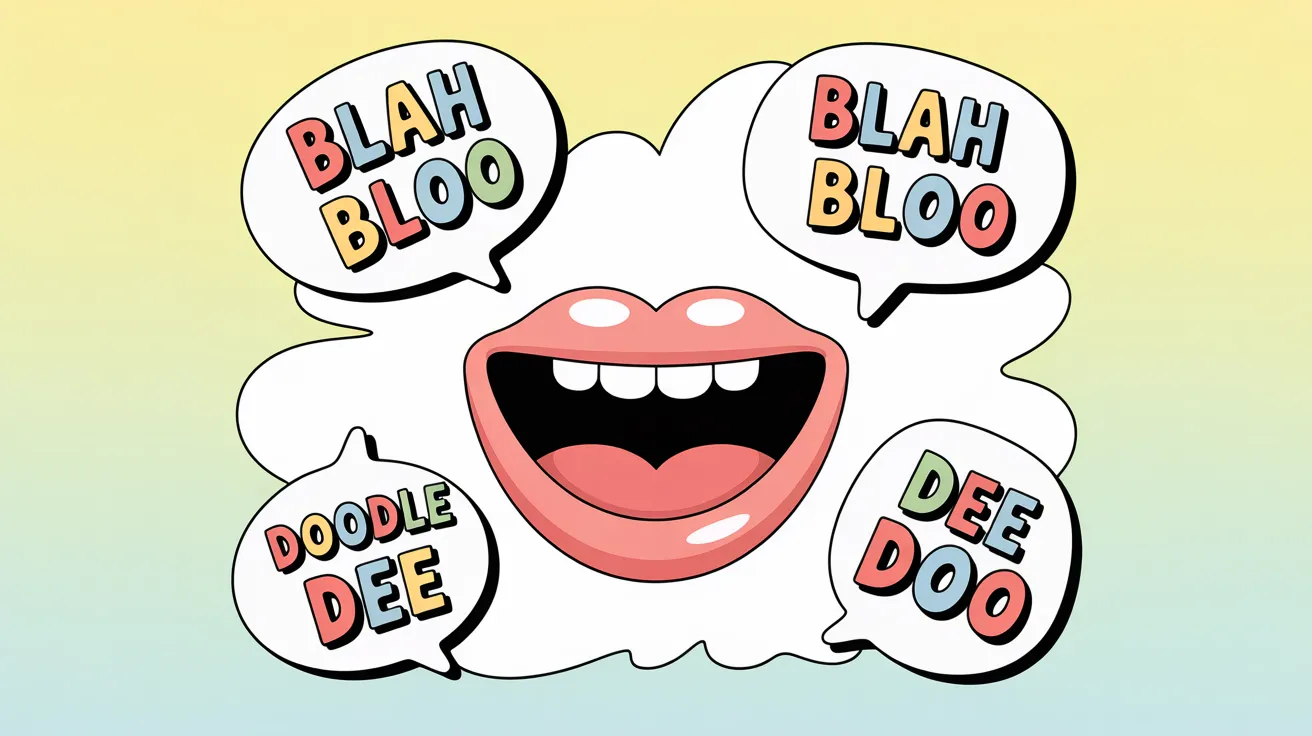
In one survey, 76% of individuals mentioned AI-generated content material isn’t “actual artwork,” perceiving a scarcity of authenticity or soul in contrived creations. Human creators draw on private expertise, feelings, and intent – they create as a result of they wish to specific one thing. AI has no internal voice or function; it generates outputs as a result of it was informed to. Thus, fields that thrive on authentic concepts and inventive risk-taking – from scientific innovation to novel writing and design – stay exhausting for AI to really disrupt. AI is a robust artistic software, however as of now, it’s extra like a intelligent imitator than a supply of real inspiration. Specialists liken AI to a “mouth and not using a mind”. Understandably so!
Moral and Ethical Reasoning
AI lacks a real ethical compass or understanding of ethics. However that is partly because of the complexity of ethical dilemmas. There are not any hard-and-fast sure or no, in terms of moral concerns. They alter over time and are drastically influenced by tradition and politics. AI can observe programmed guidelines, nevertheless it doesn’t possess human values or a conscience. Because of this, AI lacks the values, empathy, and ethical reasoning wanted for advanced moral selections.
For instance, we’d not entrust an AI to make life-and-death decisions in a medical triage or autonomous car situation with out human oversight. AI may optimize for outcomes (like effectivity or utility) with out greedy equity or compassion. In prison justice, algorithms used for sentencing or policing have proven bias on account of being educated on historic information, which might reinforce unfair prejudices.
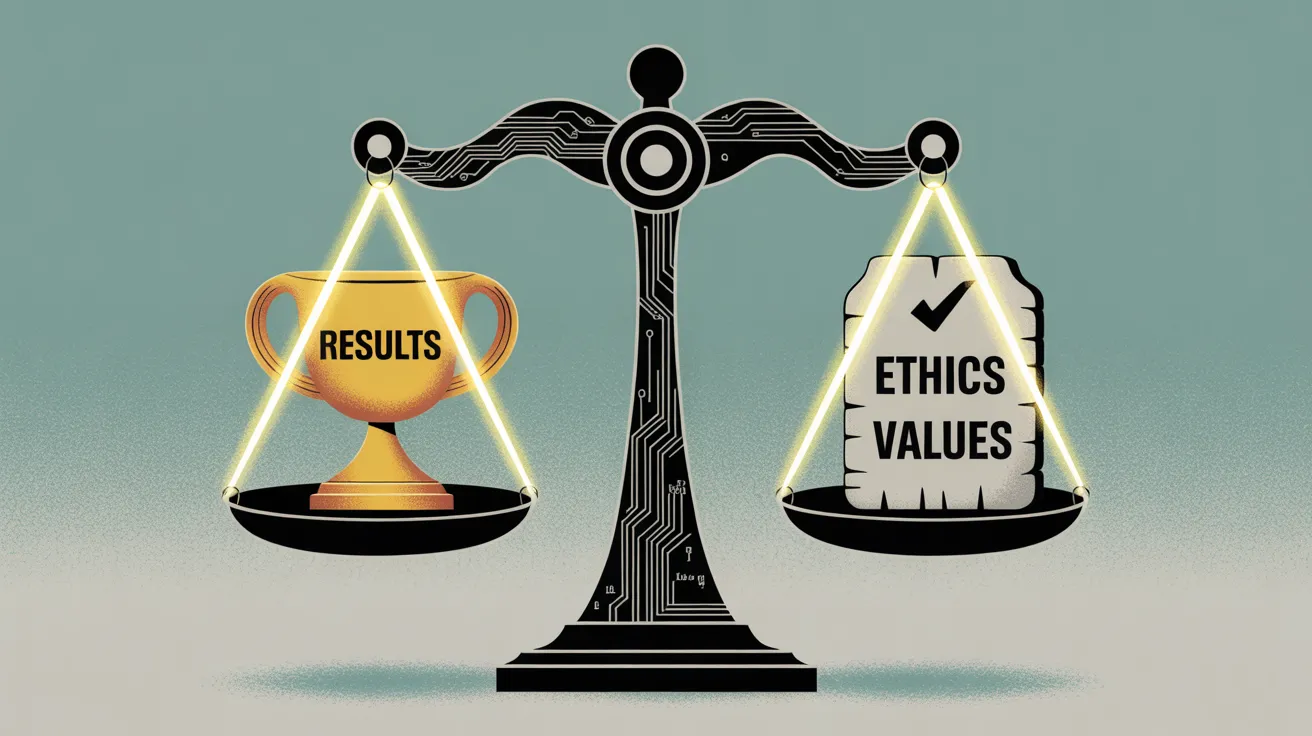
These instruments fail to acknowledge particular person circumstances or equity, underscoring that machines lack the human capability for ethical reasoning and compassion. In brief, every time a choice includes moral judgment or accountability, human judgment stays irreplaceable to weigh proper and incorrect in methods AI can’t.
Judgment and Human Values
Actual-world selections don’t have a single appropriate reply. They rely on private values, cultural context, and situational judgment. AI doesn’t perceive any of that. It runs on information and objectives, not that means.
Take one thing like choosing a design for an commercial marketing campaign or shaping a neighborhood coverage. It’s not nearly what performs nicely in checks. It’s about what suits, what feels proper. The aesthetics, the values, the tone, all of that comes from human expertise. There is no such thing as a one-size-fits-all answer by way of human values, as they’re closely formed by previous experiences. AI can’t learn a room. It doesn’t know what one thing means to somebody.

That’s why decisions tied to ethics, tradition, or judgment nonetheless want people. We see the nuance, the context, and notice when one thing feels off, even when the numbers look good. AI simply isn’t constructed for that form of understanding. precedent for this is able to be the Dutch Welfare Coverage. This program was launched to offer monetary help to the denizens of the Netherlands, the place the selection of eligible candidates relied on an ML algorithm. However on account of flawed predictive instruments, the Dutch welfare system disproportionately evaluated immigrants and low-income ladies. Additional underscoring the bias in its coaching information.
Emotional Intelligence and Empathy
Feelings and empathy are basic to many human roles, and a serious AI blind spot. AI can simulate well mannered dialog, nevertheless it lacks emotional intelligence and can’t really perceive or share emotions. For instance, in healthcare and remedy, sufferers usually want compassion and emotional assist along with factual recommendation. Consolation and help alone suffice in sure situations for remedy (Psychosomatic ailments).
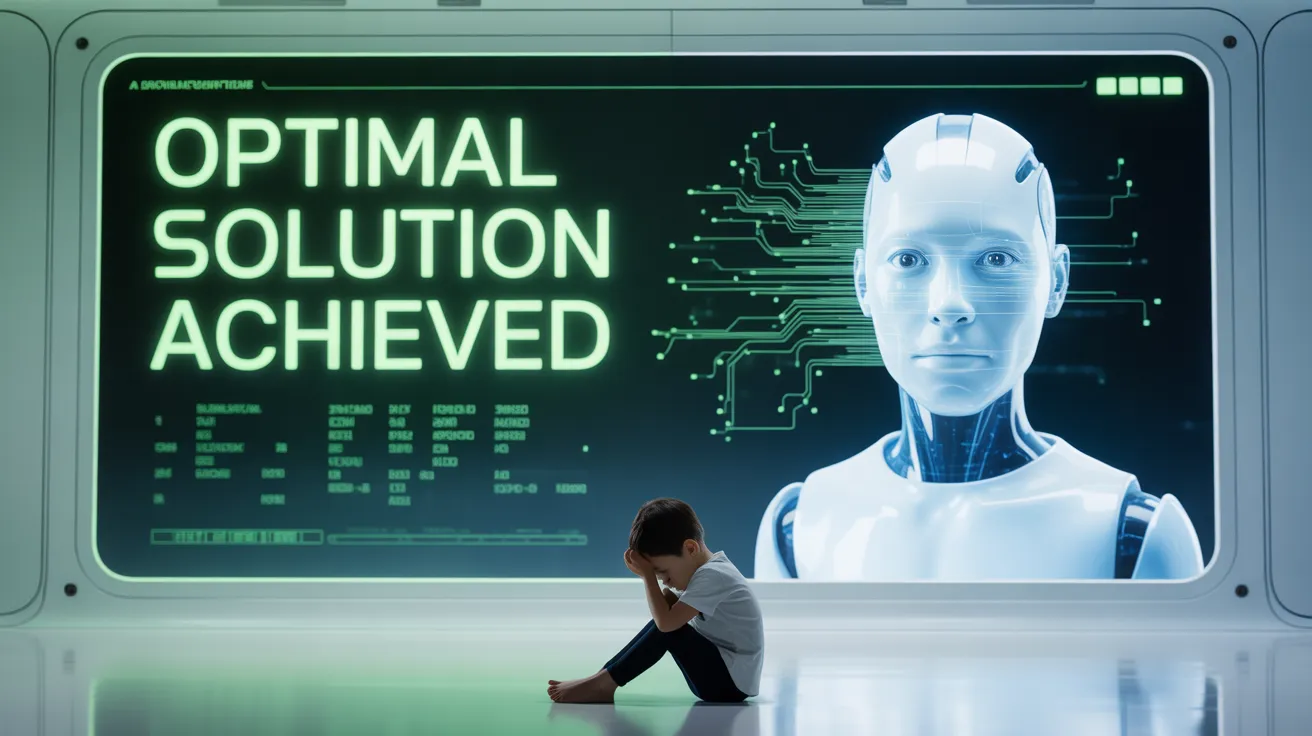
An AI therapist or caregiver may present info, but can’t reply to the unstated emotional cues {that a} human would choose up. Equally, customer support chatbots can deal with easy queries, however an offended or distressed buyer may require a human agent who can empathize and de-escalate. Constructing significant relationships – whether or not as a trainer, counselor, or nurse – requires empathy, nuanced understanding of emotions, and adaptableness to social cues, that are uniquely human traits. Actual-world expertise displays this: roles in nursing, counseling, and social work proceed to depend on the human contact, as AI can’t substitute the heat and understanding these jobs demand. Till AI can genuinely really feel or not less than deeply mannequin human emotion, its limitations stay in any utility requiring emotional connection.
Bodily and Sensorimotor Expertise
Robots endowed with AI have made strides in managed settings (like factories), however they wrestle with the bodily world’s complexity. There’s a well-known perception referred to as Moravec’s Paradox: duties people discover straightforward – strolling, perceiving, and manipulating objects – are among the many hardest for AI to duplicate. An AI can beat a grandmaster at chess, but a family robotic nonetheless can’t reliably fold laundry.
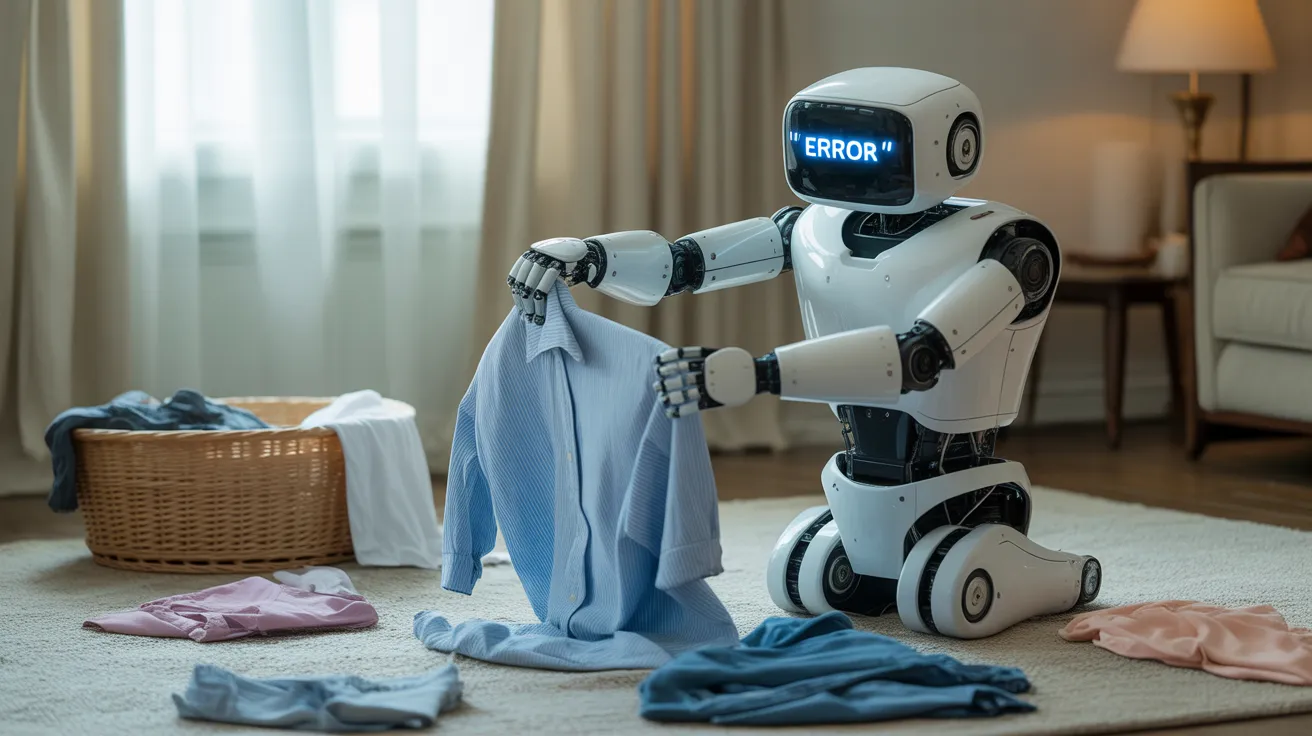
Notion and sensorimotor abilities that we take as a right require real-time understanding of numerous variables, one thing AI finds extraordinarily difficult. For instance, an autonomous car can drive optimally on mapped roads however might falter in unpredictable, unstructured environments – say, coping with sudden highway particles or human gestures – the place context modifications quickly. A caregiver shifting a affected person or a chef adjusting a recipe in actual time depends on intelligence and bodily instinct that AI lacks. Regardless of advances in robotics, human dexterity and real-world adaptability are nonetheless largely unmatched.
Management and Strategic Imaginative and prescient
Management is about motivating folks, exercising judgment underneath uncertainty, and constructing belief. These are areas the place AI struggles, as studying out of a manuscript isn’t useful. Managers and executives rely on interpersonal and strategic abilities that AI can’t mimic. Issues that they assimilate throughout years and years of expertise.
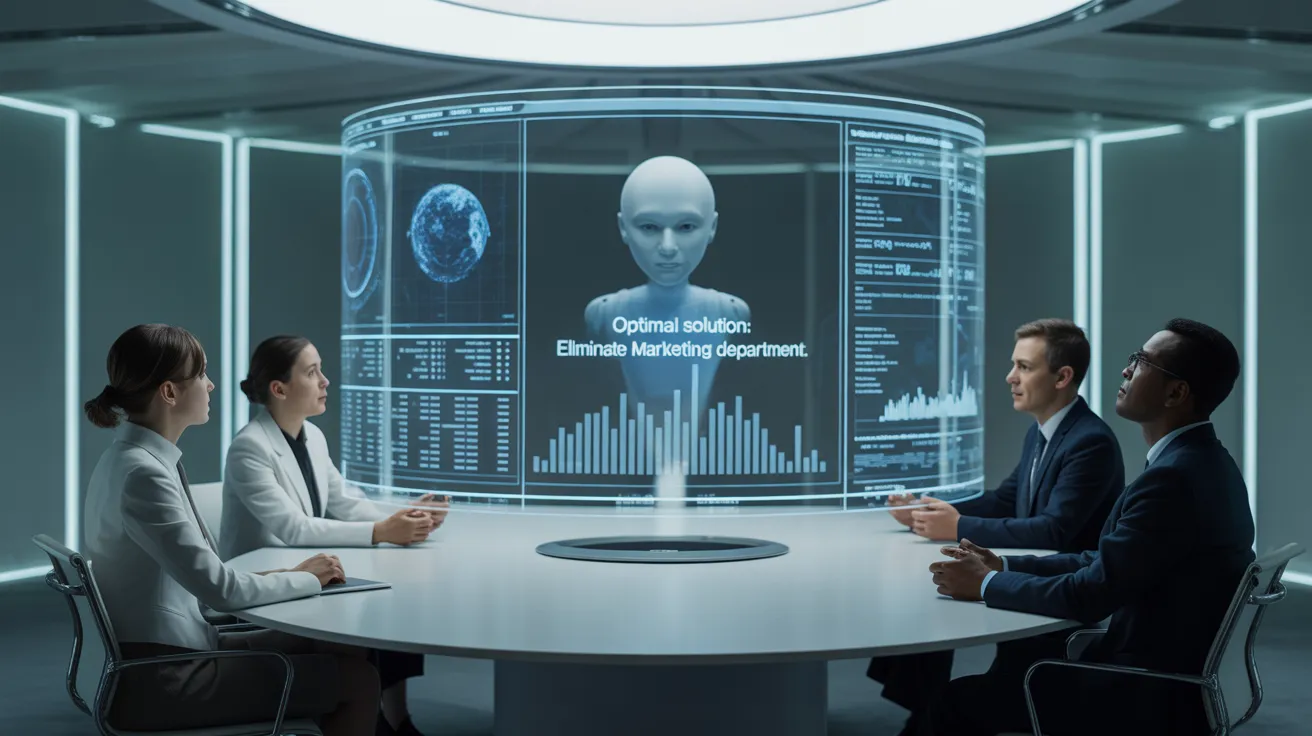
An AI may course of enterprise metrics quicker than any human, nevertheless it received’t sense workforce morale or instinctively predict how a proximal favorable determination’s future penalties. Communication and empathy are important to good management, inherently human qualities. As one evaluation mentioned, the act of inspiring and guiding others by imaginative and prescient, empathy, and communication is a human potential past AI’s attain.
Moreover, individuals are usually reluctant to observe a machine’s directives on necessary points; we would like accountable leaders who perceive our values and may be held answerable for their selections. With machines, who’s in charge for a mishap? The programmer? The corporate? People wish to pinpoint root causes. And if it someway involves an AI, there isn’t any foreseeable answer or limitation altogether.
Patterns
Factoring in all of the tangents of AI limitations, the next remark may be made:
AI struggles with subjective decision-making. Thereby, making it inept at something that isn’t a binary.
Factoring in all that we went over on this article, some clear patterns emerge:
- AI perceives patterns, not that means: It processes information with out really understanding context, emotion, or intent.
- AI handles guidelines, not ambiguity: It really works in structured environments however breaks down in unpredictable, messy real-world conditions.
- AI imitates, it doesn’t originate: It remixes current inputs with out real creativity, instinct, or self-driven function.
- AI operates with out consequence: It could actually’t care, be held accountable, or make morally grounded selections the way in which people should.
- AI is aware of details, not knowledge: It lacks the judgment, flexibility, and perspective that come from lived expertise and human perception.
Are the Limitations of AI Fixed?
The observations made listed below are based mostly on the present capabilities of AI, which could evolve sooner or later. Because the area continues to evolve, the checklist of limitations is getting narrower by the day. It received’t come as a shock if, sooner or later, AI surmounts a few of the challenges that’ve been listed on this article. However there are just a few aspects, akin to Ethics, through which if the AI can break by, we is perhaps witnessing a paradigm shift in the way in which AI operates.
Regularly Requested Questions
A. AI mimics patterns from current information however lacks creativeness, emotion, and intent. It doesn’t create with function or that means, simply outputs based mostly on coaching. People draw from private expertise and emotion to create one thing authentic. AI can remix, however not really innovate.
A. No. AI doesn’t perceive ethics, it simply follows guidelines. It lacks empathy, cultural consciousness, and a way of proper or incorrect. In advanced selections involving equity or accountability, human judgment remains to be important.
A. AI struggles in unstructured, unpredictable conditions. It could actually’t learn feelings, deal with nuance, or adapt like people. Roles needing empathy, judgment, or bodily instinct, like caregiving, management, or social work, nonetheless rely on folks.
Login to proceed studying and luxuriate in expert-curated content material.